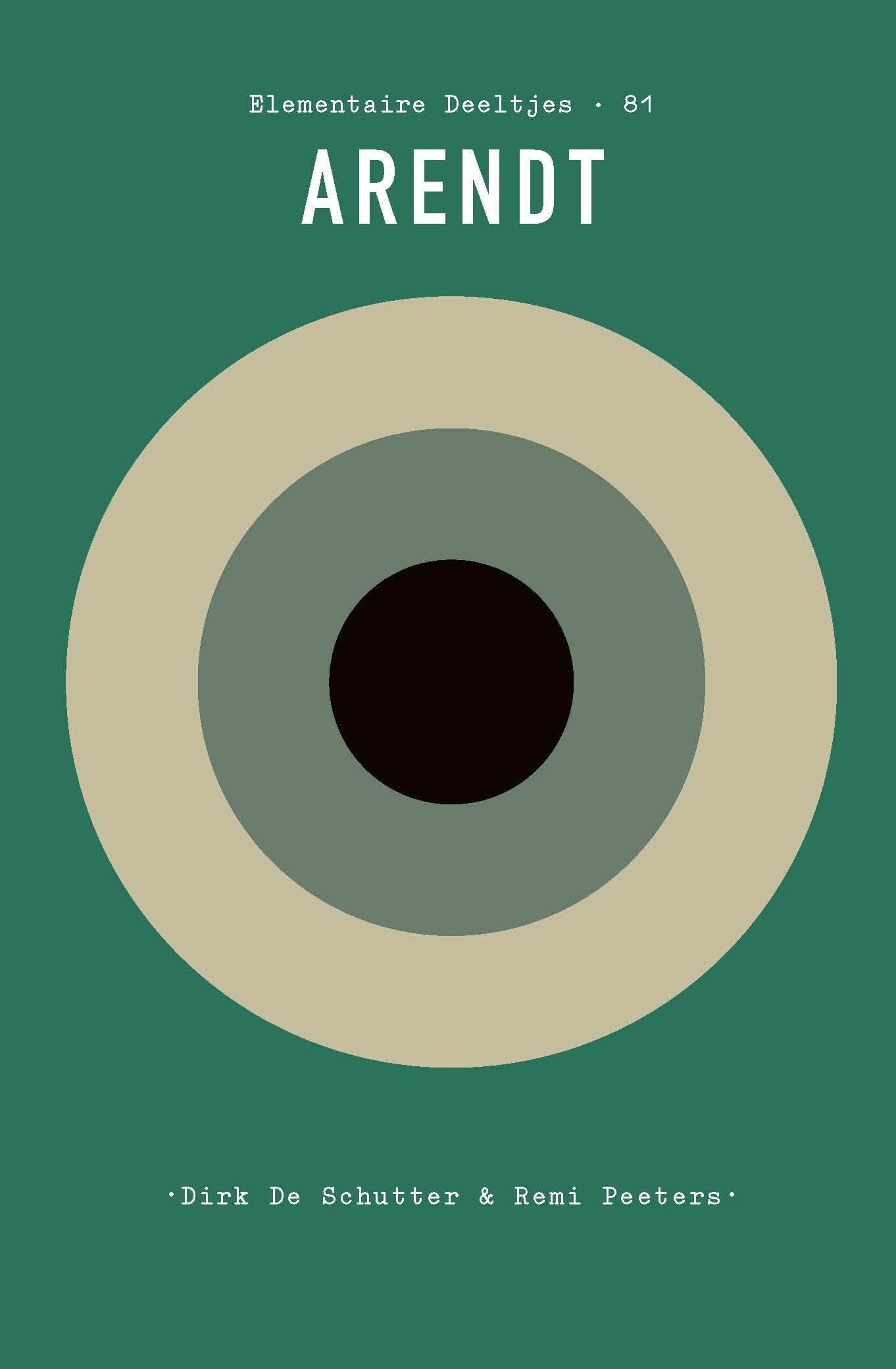


Books in series

The Earth
A Very Short Introduction
2003

Vaccinatie
2014

Socrates
2014

Cultuur
2014

Modern China
A Very Short Introduction
2008

The First World War
A Very Short Introduction
2002

Europese Unie
2014

Globalization
A Very Short Introduction
1715

Forensic Science
A Very Short Introduction
2010

Sterrenkunde
2014

Informatie (Elementaire Deeltjes Book 11)
2014

Economie (Elementaire Deeltjes)
2014

Psychology
A Very Short Introduction
1998

Wiskunde
2014

Management
A Very Short Introduction
2013

Milieu
2014

IJstijden
2014

Social and Cultural Anthropology
A Very Short Introduction
2000

Power Politics
How China and Russia Reshape the World
2014

Terrorisme
2016

Archeologie
2015

Nationalisme
2015

The Trojan War
A Very Short Introduction
2013

The Napoleonic Wars
A Very Short Introduction
2013

Kabbalah
A Very Short Introduction
2005

God
A Very Short Introduction
2014

Slaap
2012

Mythologie
2015

Niets (Elementaire Deeltjes Book 33)
2016

Chemistry
A Very Short Introduction
2013

Zintuigen
2016

Nietzsche
2016

Global Catastrophes
A Very Short Introduction
2016

Modern Japan
A Very Short Introduction
2009

De verzorgingsstaat
2016

Taal
2016

Islam
2016

Beethoven
2016

Dierenrechten
2016

Iran
2025

De Russische Revolutie
2016

The Elements
A Very Short Introduction
2004

Klassieke Literatuur
2017

Het Derde Rijk
2017

Black Holes
A Very Short Introduction
2014

Literatuur
2017

Populism
A Very Short Introduction
2017

Modern Duitsland
2017

Psychoanalysis
A Very Short Introduction
2015

Elementaire deeltjes 55 - Genen
2018

Mensenrechten
2018

Cicero
2018

Narcisme
2018

Elementaire Deeltjes - Strafrecht
2018

Elementaire Deeltjes 59 - Secularisatie
2018

Kunstgeschiedenis
2018

Big data
2018

Migratie
2018

Geschiedenis (Elementaire deeltjes)
2019

Discriminatie (Elementaire Deeltjes Book 66)
2019

Epidemieën en pandemieën
2020

Houellebecq
2020

Heidegger - Elementaire Deeltjes 69
2020

Erasmus
2020

Vikingen
2020

Sportgeschiedenis
2021

Geweld
2021

Sartre
2020

De Bijbel
2021

Kierkegaard
2022

Fascisme
2022

Taoïsme
2022

Ethics
A Very Short Introduction
2009

Bewustzijn (Elementaire Deeltjes Book 80)
2023

Arendt (Elementaire Deeltjes Book 81)
2023

Feminisme
2024
Authors


Els Kloek werd op 18 juli 1952 geboren in Leiden. Zij is de jongste van een domineesgezin met vijf kinderen. Als kind wilde ze dichteres of schrijfster worden – Annie M.G. Schmidt was haar grote voorbeeld. In haar gymnasiumtijd verschoof haar belangstelling naar politiek en samenleving, en daarom besloot ze geschiedenis te gaan studeren in Amsterdam. Ze was actief in de studenten- en de vrouwenbeweging van de jaren 70. In 1976 kreeg zij de smaak van archiefonderzoek te pakken toen ze voor haar studie in aanraking kwam met de Amsterdamse confessieboeken: verhoorboeken uit het gerechtelijk archief. Hieruit is een blijvende belangstelling ontstaan voor het zoeken naar sporen van ‘gewone mensen’ in het verleden. Het toegankelijk maken van het verleden is een andere constante in haar belangstelling. Deze is begonnen toen zij als assistent werkte op de geschiedenisbibliotheek van de UvA. Ze leerde er de waarde kennen van goede zoeksystemen en naslagwerken. Na haar studie was Els Kloek als docent verbonden aan de universiteiten van Utrecht, Nijmegen en Rotterdam. In 2012 is ze begonnen als freelancer. Hiernaast was ze enkele jaren (2011-2014) verbonden aan het Huygens ING. In 2014 heeft ze zich definitief gevestigd als zelfstandig historica. Sinds 2003 geeft ze leiding aan het Digitaal Vrouwenlexicon, een project dat door haar is geïnitieerd. Onder haar redactie verschenen 1001 Vrouwen uit de Nederlandse geschiedenis en 1001 vrouwen in de 20e eeuw waarmee ze tot het grote publiek doorbrak. Els Kloek woont in Amsterdam, is getrouwd en heeft één zoon.

Francis Edwin Close (Arabic: فرانك كلوس) In addition to his scientific research, he is known for his lectures and writings making science intelligible to a wider audience. From Oxford he went to Stanford University in California for two years as a Postdoctoral Fellow on the Stanford Linear Accelerator Center. In 1973 he went to the Daresbury Laboratory in Cheshire and then to CERN in Switzerland from 1973–5. He joined the Rutherford Appleton Laboratory in Oxfordshire in 1975 as a research physicist and was latterly Head of Theoretical Physics Division from 1991. He headed the communication and public education activities at CERN from 1997 to 2000. From 2001, he was Professor of Theoretical Physics at Oxford. He was a Visiting Professor at the University of Birmingham from 1996–2002. Close lists his recreations as writing, singing, travel, squash and Real tennis, and he is a member of Harwell Squash Club.
Willem Frederik Bernard Melching (1954) is een Nederlands historicus. Melching studeerde geschiedenis aan de Universiteit Leiden en promoveerde in 1988. Sinds 1989 is hij als historicus verbonden aan de Universiteit van Amsterdam. Hij heeft – veelal samen met Marcel Stuivenga – een aantal publicaties op zijn naam staan over de Europese geschiedenis. Zijn specialisatie is Duitsland. Daarnaast publiceert hij regelmatig essays, onder andere in het Historisch Nieuwsblad. Van Wikipedia
Govert Schilling is freelance wetenschapsjournalist en publicist. Hij schrijft over sterrenkunde en ruimteonderzoek voor kranten en tijdschriften in binnen- en buitenland, o.a. voor de Volkskrant, Eos magazine, Science, New Scientist, Sky & Telescope en BBC Sky at Night. Hij publiceerde tientallen boeken over uiteenlopende sterrenkundige onderwerpen, waarvan sommige zijn vertaald, o.a. in het Engels, Duits en Chinees. Regelmatig geeft hij op radio en tv toelichting op ontwikkelingen in de astronomie. Daarnaast verzorgt hij publiekslezingen en cursussen, en is hij eindredacteur van de populaire website allesoversterrenkunde.nl. Govert is autodidact op het gebied van de astronomie en de journalistiek. Hij was jarenlang actief in de Jongerenwerkgroep (JWG) voor sterrenkunde, was van 1980 tot 1987 hoofdredacteur van het sterrenkundig tijdschrift Zenit, en was tot 1998 werkzaam als programmaleider bij het Artis Planetarium in Amsterdam. Voor zijn werk op het gebied van de popularisering van de sterrenkunde ontving Govert diverse prijzen en onderscheidingen, waaronder de Simon Stevin-kijker van de Koninklijke Nederlandse Vereniging voor Weer- en Sterrenkunde KNVWS (1989, samen met astronaut Wubbo Ockels), de Eureka-oeuvreprijs van de Nederlandse organisatie voor Wetenschappelijk Onderzoek NWO (2002) en de David N. Schramm Award van de High-Energy Astrophysics Division van de American Astronomical Society (2014). In 2007 werd planetoïde (10986) Govert naar hem genoemd door de Internationale Astronomische Unie (IAU); in 2021 is hij benoemd tot erelid van deze organisatie. Govert Schilling is getrouwd, heeft een zoon en een dochter, en woont in Amersfoort.


Manfred B. Steger (born 1961) is Professor at the University of Hawaii at Manoa. He was also Professor of Global Studies and Director of the Globalism Research Centre at RMIT University in Australia until 2013. Steger's research and teaching spans globalization, ideology, and non-violence. Steger's won the 2003 Michael Harrington Award with his study on Globalism: The New Market Ideology.

Mike Rapport is a senior lecturer in history at the University of Stirling, in Scotland, where he teaches European history. He is author of 1848: Year of Revolution (Basic Books, 2009), Nineteenth-Century Europe, 1789-1914 (Palgrave-Macmillan, 2005), Nationality and Citizenship in Revolutionary France: The Treatment of Foreigners (Oxford, 2000). He also has a volume forthcoming on The Napoleonic Wars: A Very Short Introduction (Oxford, 2013). He was elected fellow of the Royal Historical Society in 2000. With his colleague, Dr. Kevin Adamson, he is working on a research project on the "domino revolutions" from 1848 to the Arab Awakening of 2011. Mr. Rapport earned his undergraduate degree in history at the University of Edinburgh and his doctorate, on the French Revolution, at the University of Bristol.





Peter Atkins is a fellow of Lincoln College, University of Oxford and the author of about 70 books for students and a general audience. His texts are market leaders around the globe. A frequent lecturer in the United States and throughout the world, he has held visiting professorships in France, Israel, Japan, China, and New Zealand. He was the founding chairman of the Committee on Chemistry Education of the International Union of Pure and Applied Chemistry and was a member of IUPAC’s Physical and Biophysical Chemistry Division. Librarian Note: There is more than one author in the Goodreads database with this name.

Luciano Floridi is currently Professor of Philosophy and Ethics of Information at the University of Oxford, Oxford Internet Institute, Governing Body Fellow of St Cross College, Oxford, Senior Member of the Faculty of Philosophy, Research Associate and Fellow in Information Policy at the Department of Computer Science, University of Oxford, and Distinguished Research Fellow of the Oxford Uehiro Centre for Practical Ethics. Floridi is best known for his work on two areas of philosophical research: the philosophy of information and information ethics. Between 2008 and 2013, he held the Research Chair in philosophy of information and the UNESCO Chair in Information and Computer Ethics at the University of Hertfordshire. He was the founder and director of the IEG, an interdepartmental research group on the philosophy of information at the University of Oxford, and of the GPI, the research Group in Philosophy of Information at the University of Hertfordshire. He was the founder and director of the SWIF, the Italian e-journal of philosophy (1995–2008).
Dirk De Schutter is een Vlaamse filosoof schrijver. Dirk De Schutter in de Nederlandstalige Wikipedia Dirk De Schutter is a Flemish philosopher and writer.
Rob de Wijk is the founder of The Hague Centre for Strategic Studies (HCSS) and Professor of International Relations and Security at the Institute of Security and Global Affairs at Leiden University. He studied Contemporary History and International Relations at Groningen University, and wrote his PhD dissertation on NATO’s ‘Flexibility in Response’ strategy at the Political Science Department of Leiden University. Prof. De Wijk started his career in 1977 as a freelance journalist and later became head of the Defense Concepts Department of the Dutch Ministry of Defense, head of the Security Studies at the Clingendael Institute, and Professor of International Relations at the Royal Netherlands Military Academy.
Joseph Theodoor Leerssen Also published as Joseph Th. Leerssen

Simon Blackburn FBA is an English academic philosopher known for his work in metaethics, where he defends quasi-realism, and in the philosophy of language; more recently, he has gained a large general audience from his efforts to popularise philosophy. He retired as the professor of philosophy at the University of Cambridge in 2011, but remains a distinguished research professor of philosophy at the University of North Carolina at Chapel Hill, teaching every fall semester. He is also a Fellow of Trinity College, Cambridge, and a member of the professoriate of New College of the Humanities. He was previously a Fellow of Pembroke College, Oxford and has also taught full-time at the University of North Carolina as an Edna J. Koury Professor. He is a former president of the Aristotelian Society, having served the 2009–2010 term. He was elected a Fellow of the British Academy in 2002 and a Foreign Honorary Fellow of the American Academy of Arts & Sciences in 2008.


